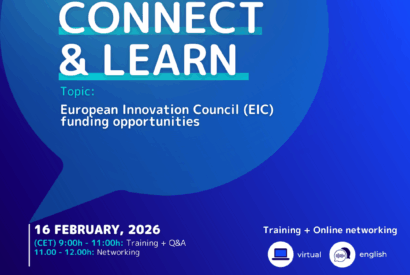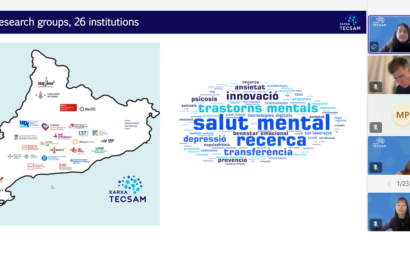Collaboration and first-person-centered approach to boost innovation in mental health
Intersection between mental health and technology: how to implement cutting-edge solutions in the Catalan healthcare system? The keys at the Technology Exploration Day of the TECSAM Network.

More than 100 innovators have met to promote digital transformation in the health and social system of Catalonia at the TECSAM Network’s Technology Exploration Day. Networking and collaboration between all agents of research, innovation and mental health, and interaction with the public administration, stand as crucial aspects to ensure that advances and solutions are effectively integrated into the Catalan health and social system.
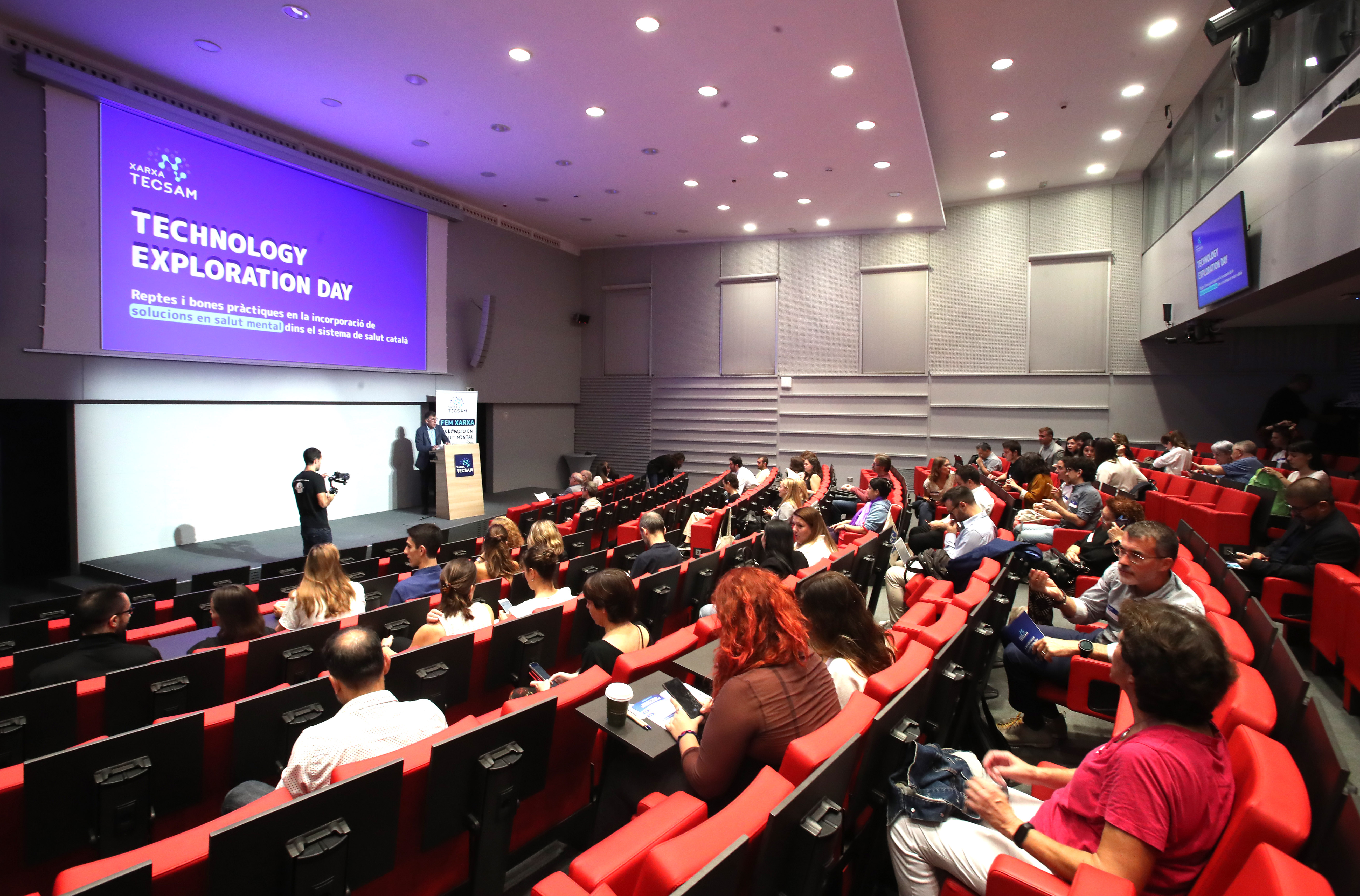
The Catalan healthcare system is at a crucial stage of transformation in which the implementation of technological solutions has an unquestionable innovative potential, not only because it can increase the effectiveness of treatment and the accessibility of healthcare to young populations or in geographically dispersed areas, but also to alleviate the healthcare burden on professionals and optimize existing healthcare resources.
The Technology Exploration Day has been a space for reflection and discussion on the challenges of this integration, such as the systematic scalability and consolidation of these solutions, the debate on privacy, confidentiality and non-invasion of user data, the difficulty of having scientific evidence of the technology effectiveness, the fear that technology can dehumanize mental health care or it can increase the workload for health professionals.
Dr. Joan Vegué, director of the Master Plan for Mental Health and Addictions, welcomed the participants and Dr. Diego J. Palao Vidal, director of Mental Health at Parc Taulí Hospital Universitari, presented the e-Salut Mental Catalunya project.
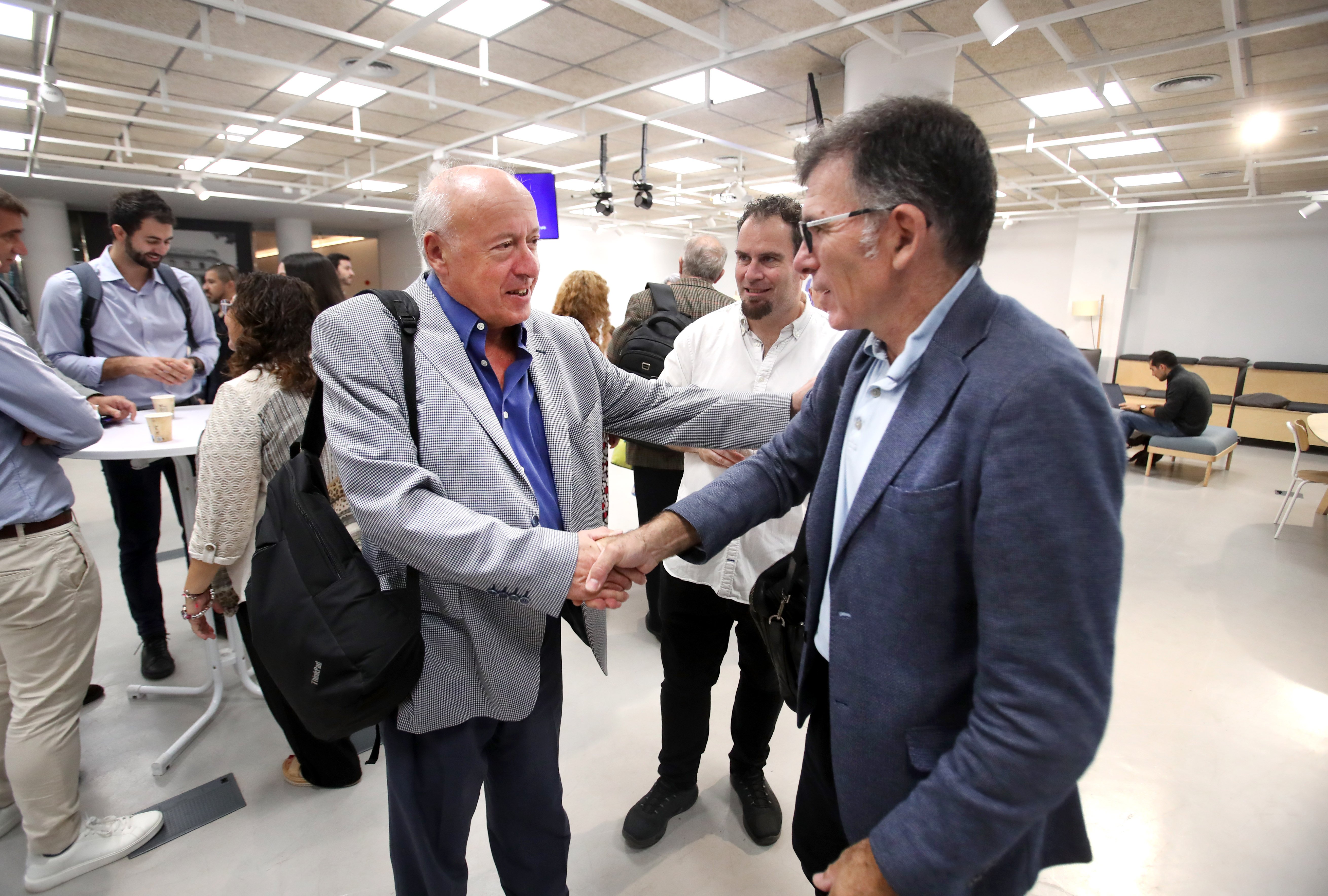
Also, in a round table discussion, five experts in research, healthcare, innovation and associations in mental health debated these problems, challenges and good practices: Dr. Petia Radeva, professor and researcher at the Department of Mathematics and Computer Science at the University of Barcelona; Dr. Antoni Ramos Quiroga, head of the Department of Psychiatry at Vall d’Hebron University Hospital; Dr. Antoni Serrano, director of Mental Health at Parc Sanitari Sant Joan Déu (PSSJD); Núria Abdón, head of Personalized Digital Care at TIC Salut Social; Ángel Urbina, first vice-president of Federació Salut Mental Catalunya (FSMC); and Dr. Judit López, coordinator of the Innovation Unit at Parc Sanitari Sant Joan de Déu (PSSJD) and head of innovation at TECSAM Network, who moderated the round table.
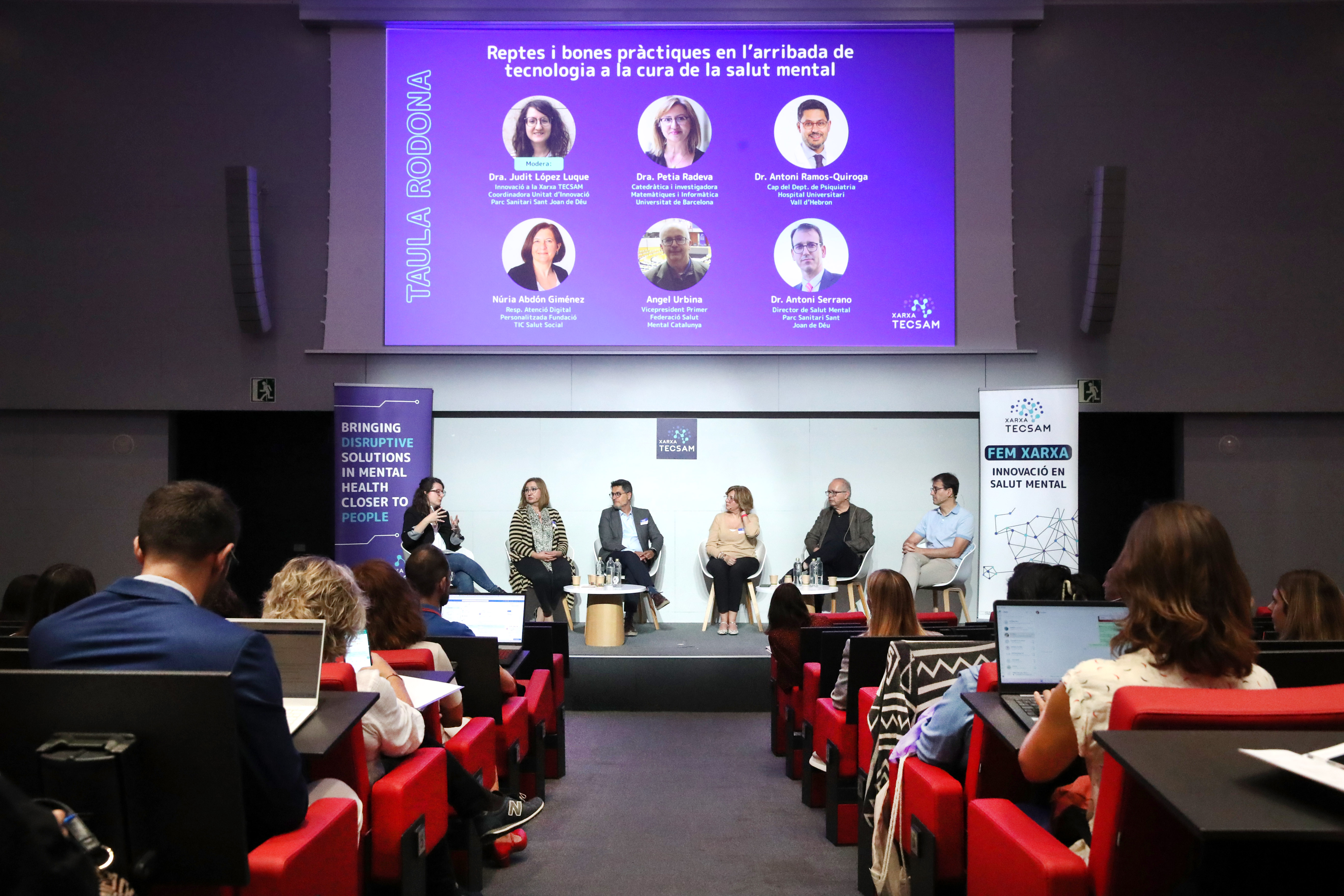
During the break, attendees were immersed into a universe of innovation, as they were able to interact with different projects developed by some of the TECSAM Network member groups through tablets and posters. The different technological applications on display stimulated discussion and a vibrant atmosphere aimed at finding digital solutions to current mental health issues.
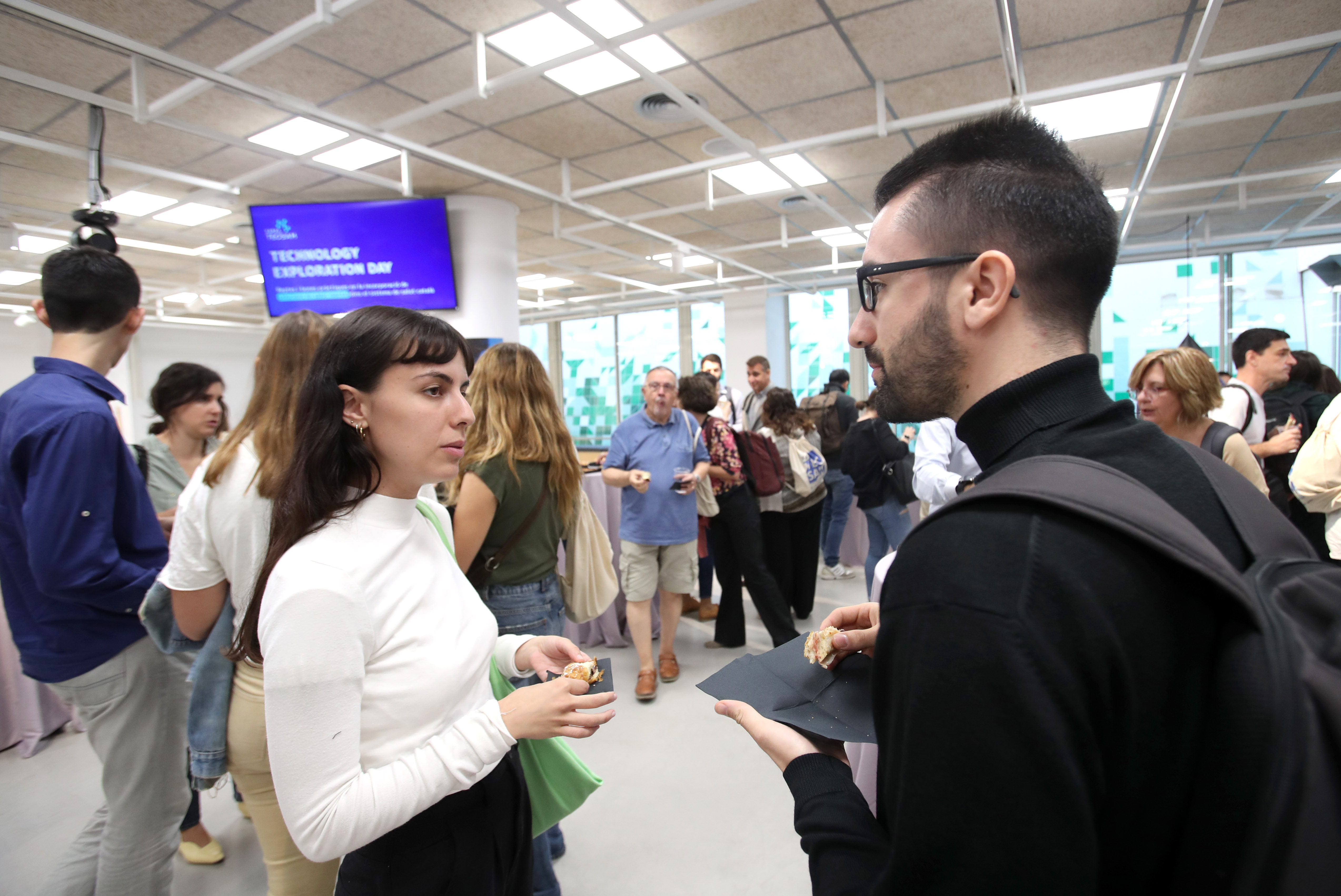
Discover the main conclusions of this meeting:
Collaboration and synergies, cornerstone of the public healthcare system.
During the welcome, Dr. Joan Vegué pointed out that mental health is now a priority on the political agenda in Catalonia, especially in the aftermath of the COVID-19 pandemic, and that it is key to adopt a cross-cutting and coordinated approach among all stakeholders to promote the arrival of solutions in the Catalan health services portfolio.
The adoption of new digital solutions requires an innovative and transformative approach, which necessarily involves collaboration between these agents because it allows combining specialized knowledge, access to resources and diverse funding, fostering innovation and increasing the acceptance and adoption of solutions in the Catalan public system.
The link with the private and business sectors is key to promoting innovations in healthcare. In this regard, Dr. Serrano also highlighted the importance of taking advantage of technologies that already exist in other fields, diversifying their uses and generating different applications.
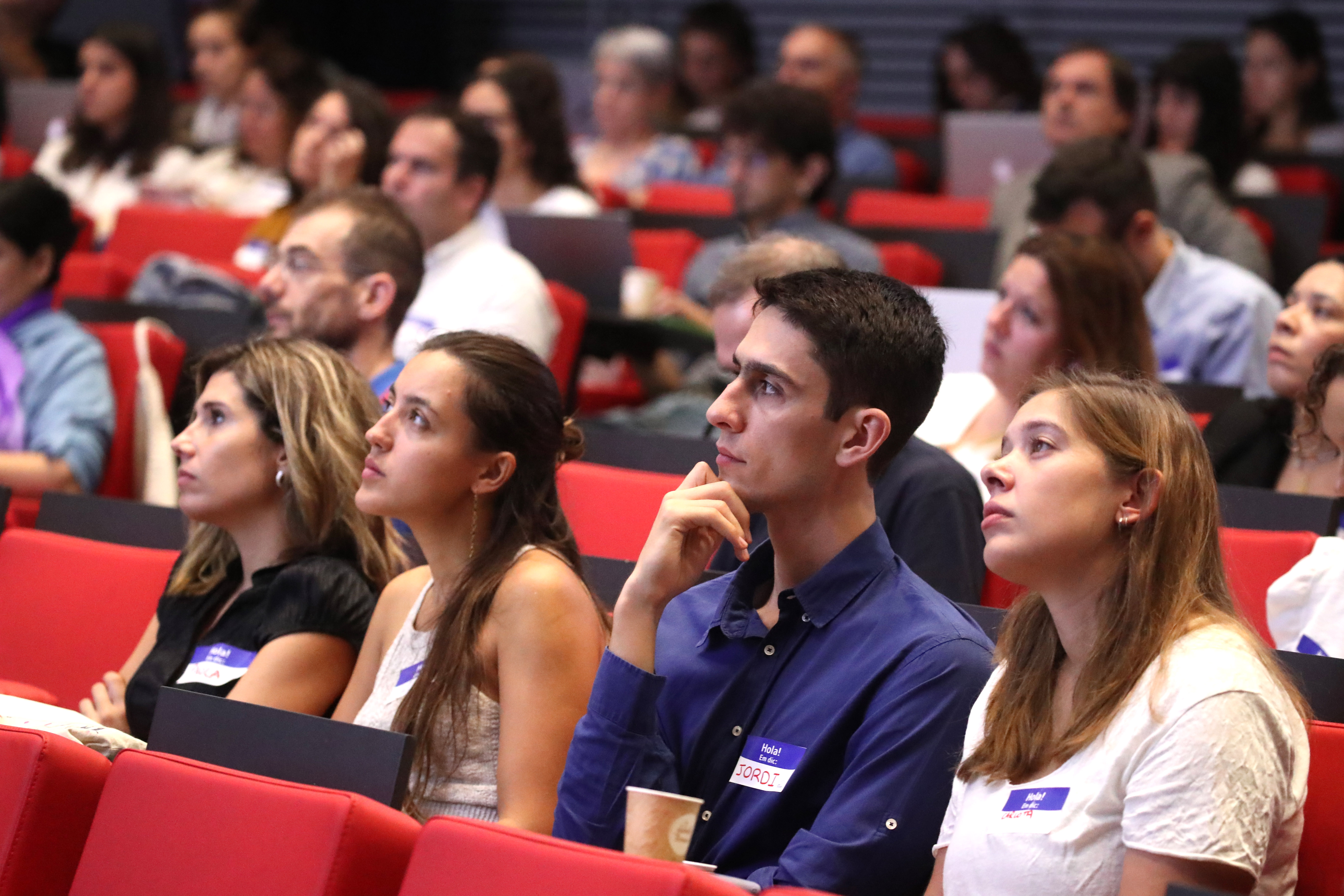
Technology as a window of opportunity
As Dr. Radeva pointed out, technology not only allows improved access, more accurate and earlier diagnosis, greater prevention and continuous monitoring and more personalized treatments, but also an optimization of health system processes, making it possible to divert efforts and resources from administrative, bureaucratic and management tasks to clinical practice itself. Therefore, technology not only serves to improve care in a given pathology, but is more transversal: it can help and facilitate organizational processes.
Representing the first person, Ángel Urbina pointed out that digital tools have emerged at the right time when it is more urgent than ever to address the general decline in the emotional well-being of the population, especially the youngest, and that, in this sense, technology can provide an answer to the lack of resources and health professionals.
Dr. Serrano warned that technology is a great opportunity, but also noted that some of these technologies can involve a high initial learning cost, since they require significant time and effort on the part of healthcare professionals, from learning to use the technology, adapting workflows or allocating resources for its management or the resolution of technical problems. Therefore, although there is a great predisposition on the part of professionals to adopt technology, its implementation must be done gradually for assimilation to be viable.
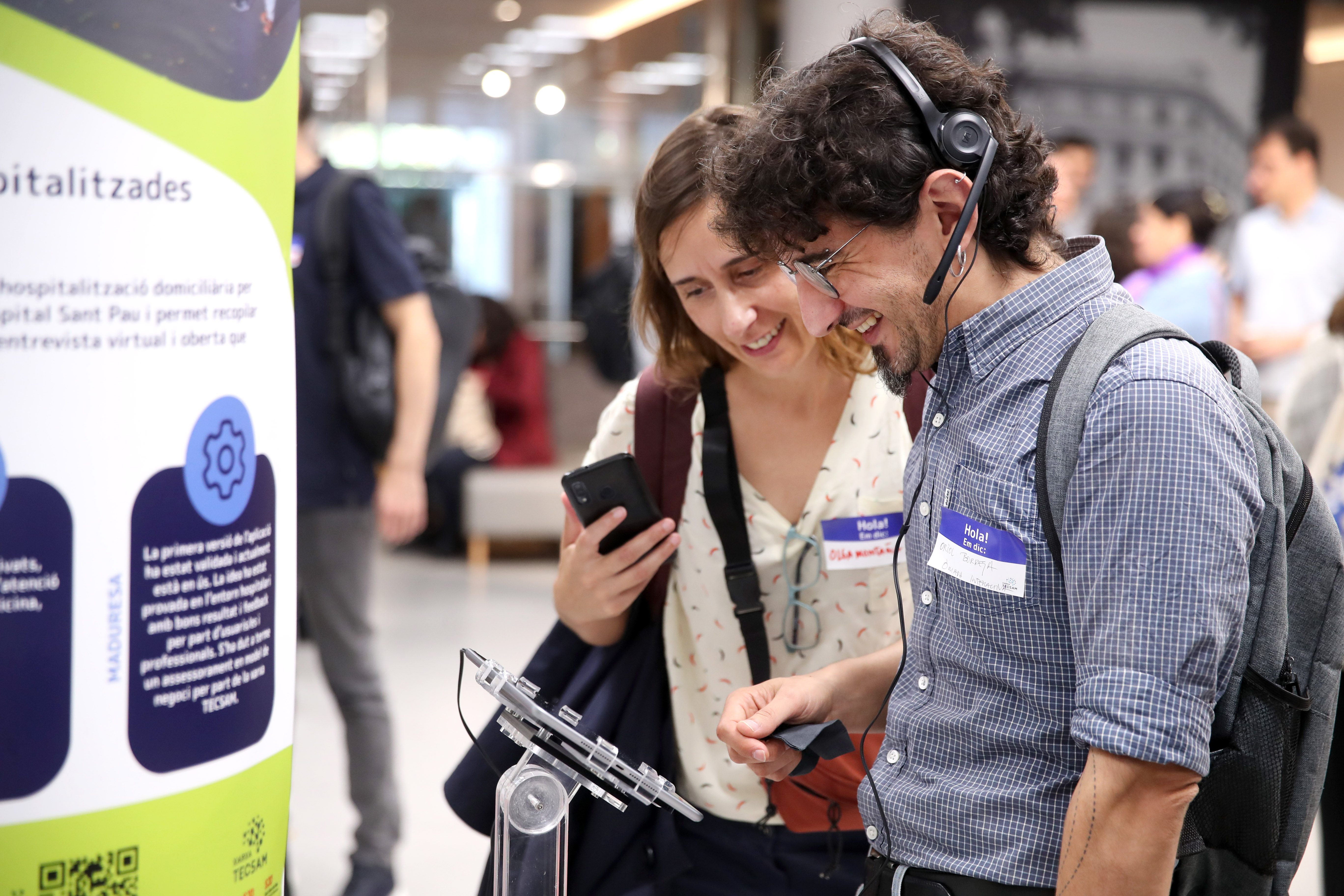
Recovery-focused approach and user experience
Urbina also brought to the table the need to overcome the paradigm of technology fear, something that involves actively listening to the needs of people with mental health problems and their family environments, and including their voice and experience in the process of developing solutions.
Some of the participants shared the widespread concern that the use of technology could lead to a dehumanization of health care. In this regard, it has been mentioned that technology must be able to be self-explanatory, that is, to explain its functionality and use in a clear and understandable way for both the professional and the user. This is crucial to combat resistance to change, promote greater adoption and use of technology and improve the user experience.
The other issue that has emerged is the need to focus on the affected people recovery, which should guide all healthcare innovations, ensuring that the solutions respond to and correspond to user needs. In fact, as Dr. Ramos-Quiroga explained, the private sector is dedicating more and more resources to developing intuitive and attractive infrastructures for tech solutions with the aim of improving usability and user experience.
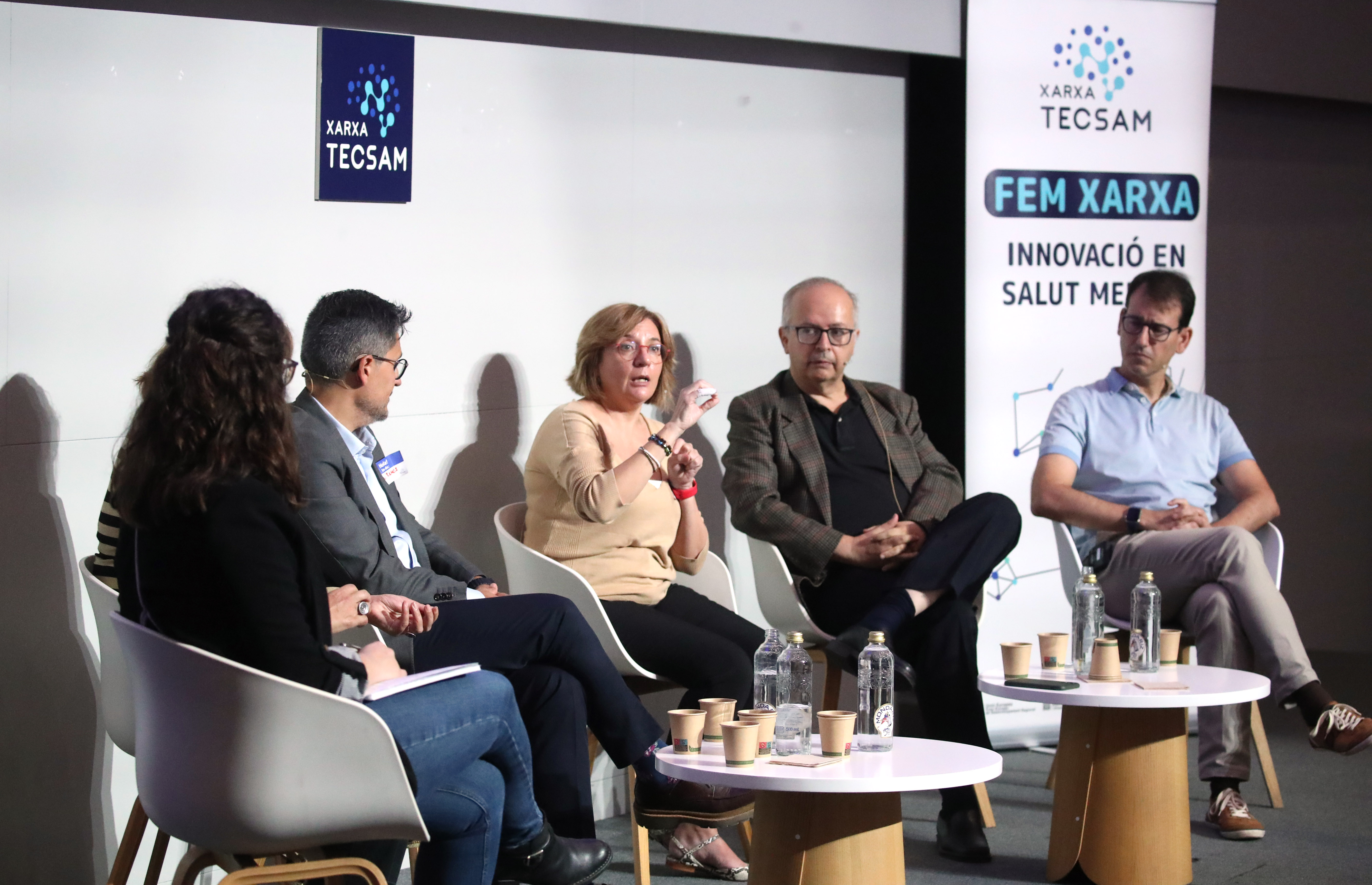
The challenge of systemic scalability and consolidation
Health innovations are already applied in clinical practice, however, one of the main challenges is the scalability of these solutions in a systemic way, consolidating and expanding them in other contexts: different health centers, hospitals, geographical areas, pathologies, etc., and the importance of doing so from a more community and social model.
In this regard, Núria Abdón, from TIC Salud Social, shared four key steps for the effective implementation of technology: clinical consensus for a comprehensive care process with accurate clinical information, an appropriate legal framework, interoperability to ensure dialogue between all the information systems and a commitment to user usability.
In the field of validation, technology also plays a key role: apart from developing innovative digital solutions for treatment, it is also imperative to develop evaluation tools for these solutions. From Dr. Ramos Quiroga’s point of view, today we are faced with a bottleneck when it comes to evaluating all these technologies that are struggling to reach the market and, in this sense, political commitment and investment is crucial for the implementation of tech solutions in the healthcare system.
Success story of implementation of a transformative project: e-Salut Mental Catalunya
During the event, Dr. Diego J Palao Vidal presented the e-Salut Mental Catalunya project, one of the 18 transformative projects, and the only one in mental health, chosen by the Department of Health to drive digital transformation in Catalonia, and a key example of how collaboration between hospitals is necessary to systematize technological advances in the Catalan public health system.
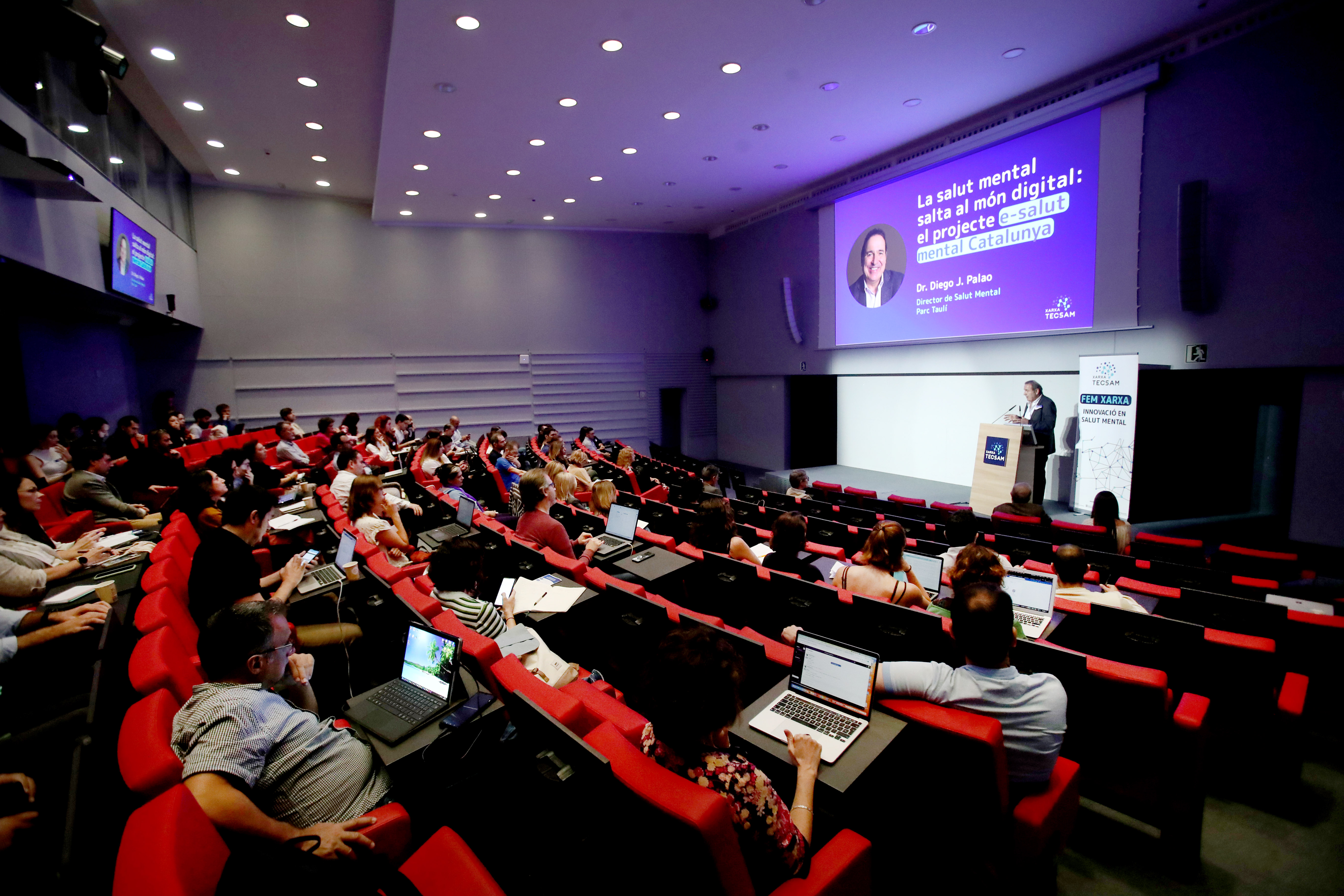
The project consists of creating a digital platform for collecting and analyzing patients’ clinical data from different digital sources and integrating them into an interoperable public platform with the aim of early detection of mental health problems, providing digital treatments for common minor disorders, such as depression or anxiety, and continuously monitoring the clinical evolution of patients with severe mental disorders in order to anticipate and not overload the primary care system.
Watch the meeting on replay:
